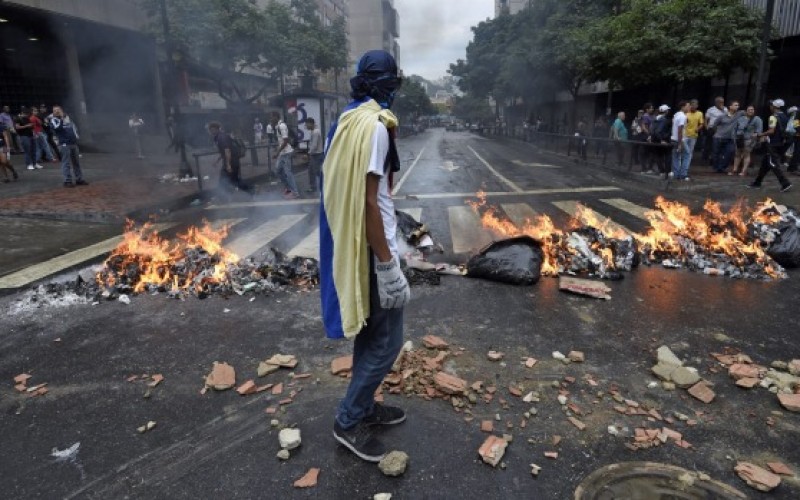An alleged coup attempt on the government of Venezuela and following protests has diverted attention from the most drastic economic decision taken by the Maduro administration—liberalizing monetary policy.

On February 11th, the Bolivar was devalued by 69% as it was partially taken off the peg with the U.S. dollar. The new exchange rate, which opened at 170 Bolivares to the dollar, is the third exchange tier in a complex three-tiered controlled currency system. The other two tiers trade at 6.3 and 12 to the dollar. The cheapest rate is still the black market exchange rate, which offers 190 Bolivares to the dollar.
The day after the devaluation, the government arrested 11 dissenting air force generals plotting to bomb strategic locations in Caracas such as the Presidential Miraflores palace. As the government announced that it had prevented a coup, violence sprouted in the streets of Caracas in large numbers to commemorate the one year anniversary of the anti-government marches — eight people have been injured in the demonstrations.
Last year at exactly this time, massive protests sprung up across Venezuela, inciting violent clashes between civilians and security forces. The government sought out an aggressive response to the protests, which resulted in multiple deaths and the incarceration of the leader of the political opposition, Leopoldo Lopez.
The timing of the failed coup (which the Venezuelan government alleges was backed by the Obama administration) and protests creates a convenient distraction from the liberal economic shock that President Maduro and the socialist party recently mandated.
Such a distraction from a necessary macroeconomic adjustment is dangerous because it could potentially foster divergence between Mr. Maduro and interest groups that support his party.
The continuous rejection of these types of economic shocks and macroeconomic liberal policies are usually at the center of the socialist party’s rhetoric, claiming that they disproportionately harm poorer households and strategic import-competing industries.
News of the massive currency devaluation, which will have a pervasive effect on all Venezuelan households, has now been sandwiched between more attractive news stories –violent protests and a coup attempt. Indeed, international news coverage of Venezuela since Wednesday, February 11th, has been dominated by social and political issues, with the monetary policy liberalization taking the backseat.
This helps President Maduro, whose decision to partly take the Bolivar off the peg to the U.S. dollar will shock the Venezuelan economy in the short to medium term and potentially foster discord within his own supporters.
Many say that Mr. Maduro is incapable of withstanding another wave of violent protests, such as the ones that engulfed the country a year ago. President Maduro entered last year’s protests in a considerably stronger position than today. His popularity rating had not dropped below 30%, and the Venezuelan economy was supported by a high price of crude oil.
Last year, Mr. Maduro also warned that the protests would result in a coup. Such a coup never materialized, and it probably will not materialize this year. What this announcement does achieve, however, is spin the news coverage away from denser economic issues that will harm the ruling government’s authority.
The massive devaluation of the Bolivar is a polarizing issue and if it becomes the center of the national dialogue, it might just create enough public distrust in the government and tension within Mr. Maduro’s own party to force his resignation.
At least social, geopolitical, and governance issues, such as poverty levels, U.S. interventionism in the region, and corruption, can be more easily politicized than the harsh economic reality that affects the purchasing power of all Venezuelan households.
Mr. Maduro hopes that as winter becomes spring in Venezuela, the inevitable incoming wave of protests is centered on sociopolitical issues, rather than hard economics. Unfortunately for him, however, an overnight 69% percent currency devaluation is too blatant a change for the public to ignore.
sourche: http://globalriskinsights.com/2015/02/failed-coup-diverts-attention-from-currency-devaluation-in-venezuela/
Δεν υπάρχουν σχόλια:
Δημοσίευση σχολίου